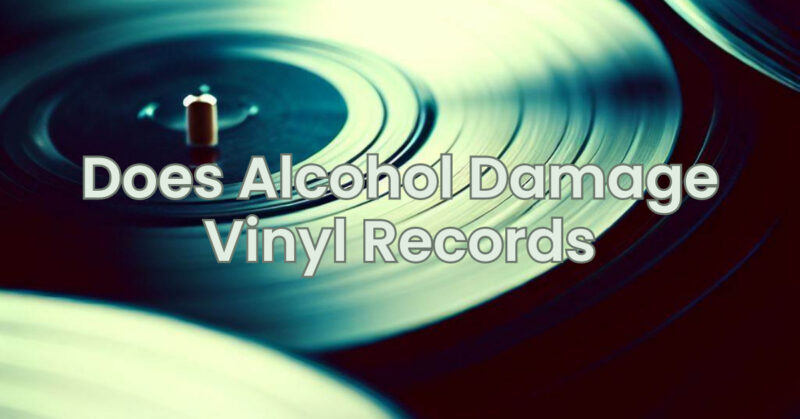When it comes to cleaning vinyl records, one commonly used cleaning agent is isopropyl alcohol. However, concerns have been raised about the potential damage alcohol may cause to vinyl records. In this article, we will delve into the effects of alcohol on vinyl records, providing insights into its usage and precautions to ensure the preservation of your valuable collection.
Understanding Vinyl Composition: To comprehend the impact of alcohol on vinyl records, it’s essential to understand the composition of vinyl. Vinyl records consist of a PVC (polyvinyl chloride) compound, which is a durable and resilient material. However, PVC can be affected by certain chemicals, including alcohol, if not used correctly.
Effects of Alcohol on Vinyl Records: Isopropyl alcohol, when used properly, can be effective in cleaning vinyl records. It helps break down oils, grime, and dirt accumulated on the surface. However, there are some considerations to keep in mind:
- Concentration: Use isopropyl alcohol with a concentration of at least 90%. Lower concentrations may contain impurities that could potentially damage the record.
- Dilution: Mix isopropyl alcohol with distilled water in a 1:1 ratio to create a gentle cleaning solution. This dilution helps reduce the potential risks associated with using pure alcohol.
- Exposure Time: Limit the exposure of the record to the cleaning solution. Avoid prolonged contact or soaking, as this can lead to damage or deterioration of the vinyl surface.
- Gentle Application: Apply the cleaning solution sparingly and use a soft cloth or brush to wipe the record surface gently. Avoid excessive pressure or scrubbing, as this can cause scratches or groove damage.
Precautions and Alternatives: While alcohol can be used safely, it’s important to exercise caution. Here are some additional precautions and alternative cleaning methods to consider:
- Spot Testing: Before cleaning an entire record, conduct a spot test on a small, inconspicuous area to ensure there are no adverse reactions or damage.
- Record Cleaning Solutions: Consider investing in commercially available record cleaning solutions specifically formulated for vinyl records. These solutions are designed to effectively clean records without causing damage.
- Carbon Fiber Brushes: Carbon fiber brushes are excellent for removing surface dust and debris from vinyl records. They offer a gentle and effective cleaning method without the need for liquids.
- Professional Cleaning: For valuable or delicate records, consider professional cleaning services. These services employ specialized equipment and techniques to safely clean and restore vinyl records.
While isopropyl alcohol can be used safely and effectively to clean vinyl records, it’s crucial to follow the recommended guidelines and precautions. Proper dilution, gentle application, and limited exposure can minimize the potential risks associated with alcohol usage. However, alternative cleaning methods such as record cleaning solutions and carbon fiber brushes offer effective and safer options for maintaining your vinyl collection. Ultimately, it’s essential to prioritize the preservation and longevity of your records by using suitable cleaning methods and handling them with care.


